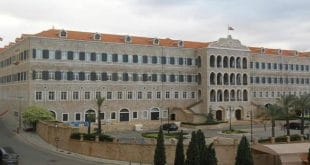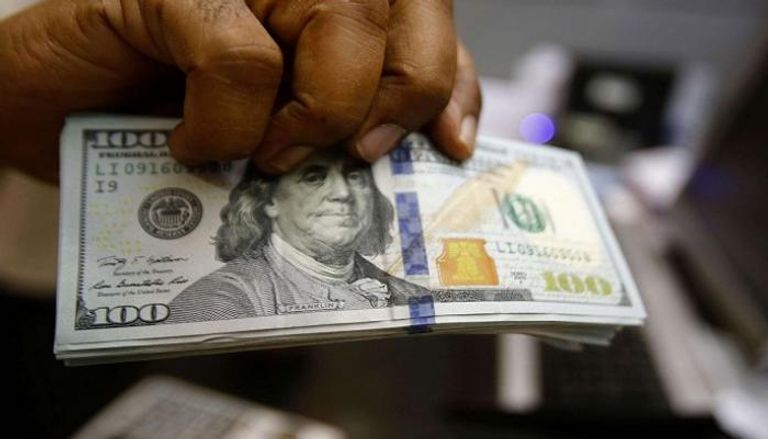“بصمات” التطوّرات السوريّة في الاقتصاد اللبناني
لا يُمكن إنكار أنّ التطوّرات على الساحة السوريّة تُرخي بظلالها على الواقع اللبناني، لا سيّما في الموضوع الاقتصادي، حيث تترقّب الأوساط الاقتصاديّة بكثير من الحذر ما سيَنتج عن عودة اللاجئين السوريين إلى سوريا وما قد يُخلّفه من شحّ في اليد العاملة في ورش الإعمار المُرتقبة، رغم أنّ هذا التأثير سيكون محدوداً مع وجود الكثير من اليد العاملة اللبنانيّة التي كان السوري يُزاحِمُها في مختلف المجالات.
سيؤدّي الوضع اللبناني، مع بدء ورشة الإعمار، وتدفّق العملات الأجنبيّة إلى ترتيبات مختلفة قد تؤثرّ على سعر الصرف بما يُعزّز الليرة اللبنانيّة ويساهم في تراجع سعر صرف الدولار، لكنّ هذه الإيجابيّة لها انعكاساتها السلبيّة على موظفي القطاع الخاصّ الذين يتقاضون رواتبهم بالدولار حيث ستتراجع قيمة رواتبهم بشكلٍ ملحوظ مع تراجع سعر صرف الدولار.
الخبير في المخاطر المصرفيّة، محمد فحيلي، يُذكّر بتعريف المفوضيّة السامية للأمم المتحدة لشؤون اللاجئين الذي ينصّ على أنّ “اللاجئ هو مَن أُجبر على الفرار من بلده الأصلي أو مكان إقامته المُعتاد بسبب الاضطهاد لأسباب تتعلّق بالعرق أو الدين أو الجنسيّة أو الانتماء إلى فئة اجتماعيّة مُعيّنة أو الرأيّ السياسي”.
ويُوضح فحيلي لـ “نداء الوطن”، أنّ “المفوضيّة تُتيح للاجئين العودة طوعاً إلى بلدانهم إذا كان قرارهم فرديّاً وغير مفروض عليهم”.
السوريون في لبنان
يشير فحيلي إلى أنّ “اللاجئ السوري جاء إلى لبنان بحثاً عن الحماية التي افتقدها في بلده”، ولكنه يرى أنّ “التطوّرات الأخيرة في دمشق تجعل أسباب بقاء اللاجئين تحت مظلّة الحماية غير متوافرة حاليّاً”، مُضيفاً أنّ “التطوّرات الإنسانيّة تتطلب وقف تقديم مُساعدات المفوضيّة لمَن بقيَ في لبنان، والعمل على تسهيل عودتهم بالتنسيق مع السلطات اللبنانيّة والأمن العام”، مُشيراً إلى أنّ “المُساعدات التي يحصل عليها اللاجئون، مثل رعاية الأطفال والمساعدات الماليّة والتعليميّة، تفوق ما تُقدّمه الدولة اللبنانيّة لمُواطنيها”.
الانعكاسات الاقتصاديّة
يوضح فحيلي أنّ “العمالة السورية تُشغّل قطاعات مثل الزراعة، البناء، المطاعم، وخدمات التوصيل، ما يُخفض الكلفة التشغيليّة للمؤسّسات اللبنانيّة، لافتاً إلى أنّ “العامل السوري يقبل بأجور مُنخفضة بسبب استفادته من دعم المفوضيّة”.
ومع ذلك، يعتقد أنّ “إعادة الإعمار في سوريا ستزيد الطلب على العمالة السوريّة هناك، ما قد يؤدّي إلى نقصِ في هذه القطاعات في لبنان، ويرفع الكلفة التشغيليّة”، مُعتبراً أنّ “عودة السوريين قد تؤدّي إلى تحدّيات في العثور على بدائل لبنانيّة في هذه القطاعات بنفس الكلفة، ممّا سيؤثرّ على الاقتصاد اللبناني ويزيد من أعباء المؤسّسات”.
تداعياتٌ على القطاع المصرفي
على المستوى المصرفي، استرجع فحيلي “حقبة التعاون بين المصارف اللبنانيّة والسوريّة في أوائل 2000، حيث أسهمت الخبرات اللبنانيّة في تطوير القطاع المصرفي السوري”، متوقعاً في هذا الإطار أنْ “يستفيد لبنان من إعادة الإعمار في سوريا، خاصّة في مجالات الخدمات الهندسية، التدقيق الخارجي، والسياحة”، لكنه لفت إلى أنّ “انعدام الثقة في المصارف اللبنانيّة قد يُعوق مشاركتها في السوق السوريّة”.
وأشار فحيلي إلى أنّ “المصارف اللبنانية التي نجحت في إعادة تكوين سيولتها الخارجيّة منذ عام 2022 قد تُواجه ضغوطاً جديدة في ظلّ التطوّرات السياسيّة والاقتصاديّة بين البلدين، خاصّة مع استمرار عقوبات “قيصر” الأميركيّة”.
الانعكاسات الجيوسياسيّة
وناقش فحيلي تأثير الوضع الجيوسياسي في سوريا على الاقتصادَيْن السوري واللبناني، مشيراً إلى أنّ “استقرار الأوضاع السياسيّة شرط أساسي لبدء إعادة الإعمار”. كما لفت إلى أنّ “استمرار السيطرة الروسيّة على بعض الموانئ السوريّة يجعل الأوضاع المُستقبليّة غير واضحة”.
التحديات المُرتقبة
ختاماً، أكد فحيلي أهميّة تعامل الدولة اللبنانية مع مسألة اللاجئين السوريين بحكمة، لأنّ استمرار التوترات قد يؤدّي إلى تأثيرات اقتصاديّة وأمنيّة.
كما أشار إلى أنّ “تحدّي الحفاظ على استقرار سعر صرف الدولار هو أهمّ من إقرار سياسات نقديّة هادفة إلى تخفيض سعر صرف الدولار مقابل الليرة اللبنانيّة”.
تحدٍ آخر في المشهد النقدي -وفق فحيلي- “إدارة التدفقات النقديّة الأجنبيّة المتوقّعة لإعادة إعمار لبنان والحؤول دون تأثيرها على الاستقرار النقدي في الداخل اللبناني. أيّ تراجع في سعر صرف الدولار مُقابل الليرة لن يُواكبه انخفاض في الأسعار وهذا يؤثّر سلباً على كلفة المعيشة”.
ومن المتوقّع، حسب فحيلي أنْ “تكون هناك شروط لإطلاق عجلة تمويل إعادة إعمار لبنان من أهمّها التزام الدولة اللبنانيّة بتنفيذ خريطة الطريق التي رسمتها لها مجموعة العمل المالي لتأمين خروج لبنان عن القائمة الرماديّة للدول غير المتعاونة بمكافحة تبيض الأموال وتمويل الإرهاب. والشرط الآخر والأكثر صعوبة هو ضرورة التقدّم بمشروع لإعادة هيْكلة وجدولة الديْن العام بما فيها عودة الانتظام للقطاع المالي”.
ويرى أنّ “الخطوة الإيجابيّة التي اتخذها مصرف لبنان في كانون الأوّل 2023، وهي تتمثّل بتحديد سعر الصرف المُعتمد على منصة صيرفة عند 89500 ليرة لبنانية للدولار الواحد، ومنذ ذلك الحين شهِدت إيرادات الحكومة تحسّناً ملحوظاً لدرجة أنّها سجّلت فائضاً في النصف الأول لسنة 2024″، مُعتبراً أنّ “تحقيق استقرار اقتصادي رغم التحديات مُمكن، ولكن الوصول إلى استقرار شامل ومُستدام يعتمد على تطوّرات الأوضاع السياسيّة والاقتصاديّة في كلا البلديْن”.
“Syrian Developments” and Their Economic Impact on Lebanon: A New Phase
The political and humanitarian developments in Syria continue to cast their shadow over Lebanon, particularly in the economic realm. Economic circles are watching with great caution the implications of the return of Syrian refugees to Syria, which may lead to a labor shortage in the anticipated reconstruction projects. However, this impact is expected to be limited as many Lebanese workers were previously in competition with Syrians across various sectors.
As Lebanon enters a new phase with the rebuilding efforts and the influx of foreign currency, the exchange rate may be affected in ways that could strengthen the Lebanese pound and decrease the dollar’s value. While this may seem positive, it poses significant challenges for private sector employees who earn their salaries in dollars, as their wages will decrease in value with the fall of the dollar.
Refugees and Labor Market Impact
Banking risk expert, Mohamed Fhayli, refers to the United Nations High Commissioner for Refugees' (UNHCR) definition of a refugee, which states: “A refugee is someone who has been forced to flee their country due to persecution based on race, religion, nationality, membership in a particular social group, or political opinion.” Fhayli explains that the UNHCR allows refugees to voluntarily return to their home countries, as long as their decision is individual and not coerced.
Fhayli further points out that the Syrian refugees in Lebanon came in search of protection, which they lacked in Syria. However, given the current situation in Damascus, the reasons for their continued stay in Lebanon are no longer valid. The humanitarian developments require the cessation of UNHCR aid for those still in Lebanon, and efforts should be made to facilitate their voluntary return in coordination with the Lebanese authorities and General Security.
Economic Consequences
Fhayli outlines how the Syrian labor force has long been employed in sectors such as agriculture, construction, restaurants, and delivery services, which has lowered operational costs for Lebanese businesses. Syrian workers tend to accept lower wages due to the support they receive from the UNHCR.
However, Fhayli anticipates that the Syrian reconstruction efforts will increase demand for Syrian workers in Syria, which could lead to a shortage of labor in Lebanon. This will raise operational costs in Lebanon and pose challenges in finding Lebanese substitutes for these jobs at similar wages. This shift could burden Lebanon’s economy, further increasing the strain on businesses.
Banking Sector Implications
From a banking perspective, Fhayli recalls the early 2000s when Lebanese banks collaborated with Syrian banks, contributing to the development of Syria’s banking sector. He expects that Lebanon may benefit from Syria's reconstruction, especially in fields such as engineering services, external auditing, and tourism. However, he warns that the lack of trust in Lebanese banks could hinder their participation in the Syrian market.
Fhayli also notes that Lebanese banks that successfully rebuilt their foreign liquidity since 2022 may face new pressures due to political and economic developments between Lebanon and Syria, especially with the continuation of US sanctions under the “Caesar Act.”
Geopolitical Implications
Fhayli discusses the geopolitical situation in Syria and its impact on both the Syrian and Lebanese economies. He stresses that political stability is crucial for the success of Syria’s reconstruction efforts. Additionally, Russian control over some of Syria’s ports makes future prospects uncertain, as it limits clear economic pathways.
Challenges Ahead
Finally, Fhayli underscores the importance of how the Lebanese government handles the issue of Syrian refugees, as ongoing tensions could lead to significant economic and security consequences. The most pressing challenge for Lebanon remains maintaining the stability of the dollar exchange rate, which is more critical than implementing monetary policies aimed at reducing the dollar's value against the Lebanese pound.
Another challenge in the monetary scene, according to Fhayli, is managing the expected foreign currency flows for Lebanon’s reconstruction efforts and preventing them from destabilizing Lebanon's internal monetary stability. Any drop in the dollar's value against the pound will not be accompanied by a decrease in prices, which will negatively impact the cost of living.
Fhayli predicts that the key conditions for launching Lebanon’s reconstruction financing will include the Lebanese government’s commitment to implementing the roadmap set by the Financial Action Task Force (FATF) to remove Lebanon from the grey list of non-cooperative countries in combating money laundering and financing terrorism. Another tough condition is the need to propose a plan for restructuring and rescheduling public debt, including restoring order to the financial sector.
Fhayli also highlights the positive step taken by the Lebanese Central Bank in December 2023, setting the exchange rate on the Sayrafa platform at 89,500 Lebanese pounds per dollar. Since then, government revenues have shown noticeable improvement, even recording a surplus in the first half of 2024. Fhayli believes that while achieving economic stability amid these challenges is possible, reaching overall and sustainable stability will depend on the evolving political and economic conditions in both Lebanon and Syria.
Translated by economyscopes team
المصدر: رماح هاشم – نداء الوطن
 سكوبات عالمية إقتصادية – EconomyScopes إجعل موقعنا خيارك ومصدرك الأنسب للأخبار الإقتصادية المحلية والعربية والعالمية على أنواعها بالإضافة الى نشر مجموعة لا بأس بها من فرص العمل في لبنان والشرق الأوسط والعالم
سكوبات عالمية إقتصادية – EconomyScopes إجعل موقعنا خيارك ومصدرك الأنسب للأخبار الإقتصادية المحلية والعربية والعالمية على أنواعها بالإضافة الى نشر مجموعة لا بأس بها من فرص العمل في لبنان والشرق الأوسط والعالم




